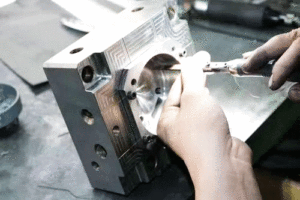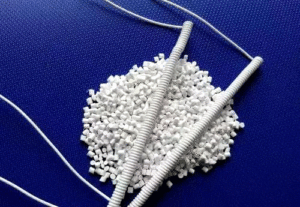
Polishing Treatment for Plastic Molds
Polishing Treatment for Plastic Molds With the widespread application of plastic products, such as daily-use items and beverage packaging containers, there is often a requirement
In the manufacturing of rubber molds, some commonly used mold types include:
Open molds are the simplest and most common type of rubber molds. They consist of two flat panels, and rubber material is poured between them. Open molds are suitable for producing flat, simple-shaped, or small-sized rubber products.
Closed molds, also known as box molds. They are composed of two or more mold shells, completely enclosing the rubber material inside the mold. Closed molds are suitable for manufacturing rubber products with complex shapes, precise dimensions, and internal cavities.

Rubber injection molds use a process similar to plastic injection molding, injecting molten rubber material into the mold using an injection machine. This type of mold is suitable for manufacturing high-precision, complex-structured rubber products, such as seals and rubber parts.
Compression molds involve placing rubber material in a heated mold and applying pressure to fill the mold cavity and cure the material. This type of mold is suitable for manufacturing large, sturdy rubber products with specific hardness requirements.
Molds Male and female molds are a pair of molds used to manufacture rubber products with specific shapes. The male mold is the part of the mold with the desired shape, and the female mold complements the male mold. This type of mold is suitable for manufacturing rubber products with complex surfaces or unique shapes.
In the manufacturing of rubber molds, some commonly used mold steel materials include:
S50C is a common carbon structural steel with good cutting performance and mechanical properties. It is suitable for manufacturing rubber molds of general shapes and sizes.
Steel S136, also known as 420 steel, is a stainless steel mold steel. It has excellent corrosion resistance and wear resistance, making it suitable for manufacturing rubber molds, injection molds, and die-casting molds.

P20 is a high-quality pre-hardened mold steel with good cutting performance and mechanical properties. It is suitable for manufacturing large or complex rubber molds, especially for injection molding.
H13 is a hot work mold steel with excellent heat resistance and wear resistance. It is suitable for manufacturing molds in high-temperature environments, such as rubber hot-pressing molds.
NAK80 is a high-hardness pre-hardened mold steel, suitable for manufacturing injection molds and die-casting molds. It has excellent cutting performance and high-temperature stability.
718H is an improved version of 718 steel with higher hardness and strength. It is suitable for manufacturing rubber molds that require high precision, strength, and heat resistance.
2311 is a pre-hardened mold steel with moderate hardness and good wear resistance. It is suitable for general mold manufacturing, including rubber molds.
2344, also known as H13 steel, is a hot work mold steel. It has excellent heat resistance and wear resistance, suitable for the manufacturing of rubber molds in high-temperature environments.
2738 is a high-quality machinable mold steel with high hardness and strength. It is suitable for manufacturing large rubber molds, such as rubber extrusion molds.
S7 is a cold work mold steel with good toughness and wear resistance. It is suitable for manufacturing rubber molds with complex shapes and high precision requirements.
NAK55 is a low-shrinkage pre-hardened mold steel with good dimensional stability and wear resistance. It is suitable for manufacturing high-precision rubber molds.

Polishing Treatment for Plastic Molds With the widespread application of plastic products, such as daily-use items and beverage packaging containers, there is often a requirement

Injection Molding Techniques for TPE and TPR Injection Molding Techniques for TPE and TPR 1. Dry the TPE and TPR material before injection molding It

Winter Maintenance Measures for Injection Molding Machines As winter approaches and temperatures gradually drop, a cold chill envelops the earth. While ensuring personal warmth, it

Assessment Regulations for Mold Trial Exceeding 3 Times Assessment Regulations for Mold Trial 1. Purpose The purpose of this regulation is to standardize the work of